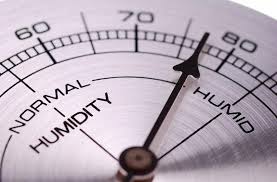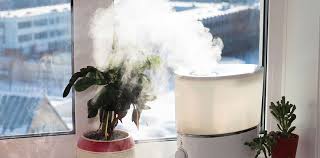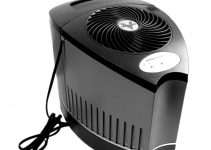Humidity is the quantity of moisture present in the atmosphere. Water vapor is the gaseous state of water and is not visible. Humidity levels indicate the probability of precipitation, fog, or dew. High humidity decreases the effectiveness of sweating by decreasing the evaporation rate of moisture from the skin.
When there is a change in humidity in the air, it can make everyone feel tired and lethargic. From your health to the things in your home, everything is impacted by humidity. It is necessary to protect yourself from the shift in weather and air humidity levels.
Negative Effects of Low Humidity
The ideal humidity level is between 40 and 60 percent, although some experts claim those levels should be between 35 and 45 percent. Low humidity usually becomes noticeable when it falls below 40 percent, and this is most common during the winter months. Changes in humidity levels can have effects on the growth of allergens like mold and mildew.
Dry air causes nasal congestion, dry throat, dry sinuses, and dry skin. It can make it difficult for these parts of your body to lubricate themselves. They can easily lead to sinus infections and cold. During cold weather, mildew and bacteria including mold can’t grow effectively. However, these conditions are favorable for viruses and other diseases. Read more on how to keep the right humidity level at home.
Negative Effects of High Humidity
 The easiest way to know if the humidity has risen up to 60 percent is to check your hair. When you touch your hair, it will feel very frizzy. That’s a sign that the humidity is too high and will be uncomfortable. The moisture in the air makes it harder for our own bodies to evaporate the moisture within them. In other words, the human natural air conditioner becomes broken down.
The easiest way to know if the humidity has risen up to 60 percent is to check your hair. When you touch your hair, it will feel very frizzy. That’s a sign that the humidity is too high and will be uncomfortable. The moisture in the air makes it harder for our own bodies to evaporate the moisture within them. In other words, the human natural air conditioner becomes broken down.
1. Effects on your health:
High humidity favors the survival of mildew and mold. Since they cannot be seen with the naked eye, you may be unaware of their existence. If you could see them, you probably wouldn’t want to breathe anymore. If the mildew and mold are able to gain access to your body, they can be highly toxic and affect your health. Dust mites can multiply in high humidity as it favors their growth. All of these allergens can lead to those pesky allergy symptoms you find yourself suffering from. Those who live in places with higher levels of mold and mildew often find themselves falling ill. Though they have varying degrees of severity, the resulting effect is always uncomfortable. A dehumidifier in your home can help eliminate excess moisture and help reduce the presence of allergy-causing particles.
2. Effects on your home:
Although your health is most important, you should also consider the negative effects on your home. Excess moisture is often most obvious is cellars, where there is little air circulation. Moisture can find its way into any area of your home and slowly wear away at it. As the problem becomes more severe, you may even begin to notice visible places of mold and mildew growth.
Have you ever wondered how chairs and guitars are made? How is it possible for them to bend wood without breaking it? It is a result of a careful steam process. The heated moisture makes the wood very flexible. This same science can bend the wood in your home. Not only can it affect your wooden furniture, it can slowly bend the wood in your walls.
Wet stains or peeling on your walls are two signs that your home has too much moisture. You must seek help from a professional right away.
Final Words
Humidity can ruin people’s health, damage their houses, and drain their budget. If you notice the presence of moisture is affecting your health or growing mold in your house, take steps to address it immediately.




